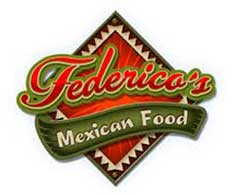An E. coli outbreak associated with Federico’s restaurant in Litchfield Park, AZ has sickened at least 77 people some of whom have been hospitalized. [Updated August 21.] The Maricopa County Departments of Public Health and Environmental Services and the Arizona Department of Health Services are investigating and ask anyone experiencing bloody diarrhea to seek medical care. E.coli poisoning can cause serious illness, here’s what you need to know:
Children are at particular risk with E.coli infections. Because their immune systems are not fully developed, children are at special risk with all food poisoning infections and related complications. With E.coli infections, the complications can be serious or life-threatening. About 15 percent of children under ten who contract an E. coli infection develop hemolytic uremic syndrome (HUS) which leads to kidney failure. About 5 percent of children who develop HUS don’t survive.
E.coli infections can be made worse through treatment with antibiotics. According to the Centers for Disease Control and Prevention (CDC), “antibiotics should not be used to treat this infection. There is no evidence that treatment with antibiotics is helpful, and taking antibiotics may increase the risk of HUS. Antidiarrheal agents like Imodium® may also increase that risk.” This doesn’t mean you shouldn’t see a doctor if you have symptoms, just don’t take antibiotics if E.coli poisoning hasn’t been ruled out. Staying hydrated is very important.
The symptoms of an E. coli infection include severe abdominal cramps, vomiting and diarrhea or bloody diarrhea. Symptoms usually develop three to four days after exposure.
How is E. coli transmitted? E.coli is a bacteria that lives in the bowels of animals. It is transferred through what epidemiologists call the fecal-oral route, meaning you get E.coli poisoning when you eat food that has microscopic amounts of fecal matter on it.
E.coli can cause serious complications. In addition to HUS, E. coli infection can cause hemorrhagic colitis, abnormal kidney function, gall stones, disturbances of the central nervous system such as disorientation, delirium, hallucinations, dizziness and tremors; seizures, stroke, heart problems, and coma.
You can reduce your risk of E.coli poisoning by washing your hands before you prepare and eat food and after you pet or hold an animal; by wiping up spilled meat juices and using separate utensils and dishes for raw and cooked meats; by washing produce under cool running water, by avoiding high-risk foods such as raw milk or unpasteurized cheeses; and by using a meat thermometer to make sure your meat has been cooked to a high enough temperature to kill any pathogens. Fish and whole cuts of pork and beef such as steaks, roasts and chops that are not mechanically tenderized and have not been scored should be cooked to 145˚ F. Mechanically tenderized or scored beef and pork, ground meat, and egg dishes should be cooked to 160˚F. All poultry, including whole birds; pieces, such as breasts and tenderloins; and ground turkey or chicken should be cooked to 165˚F.





